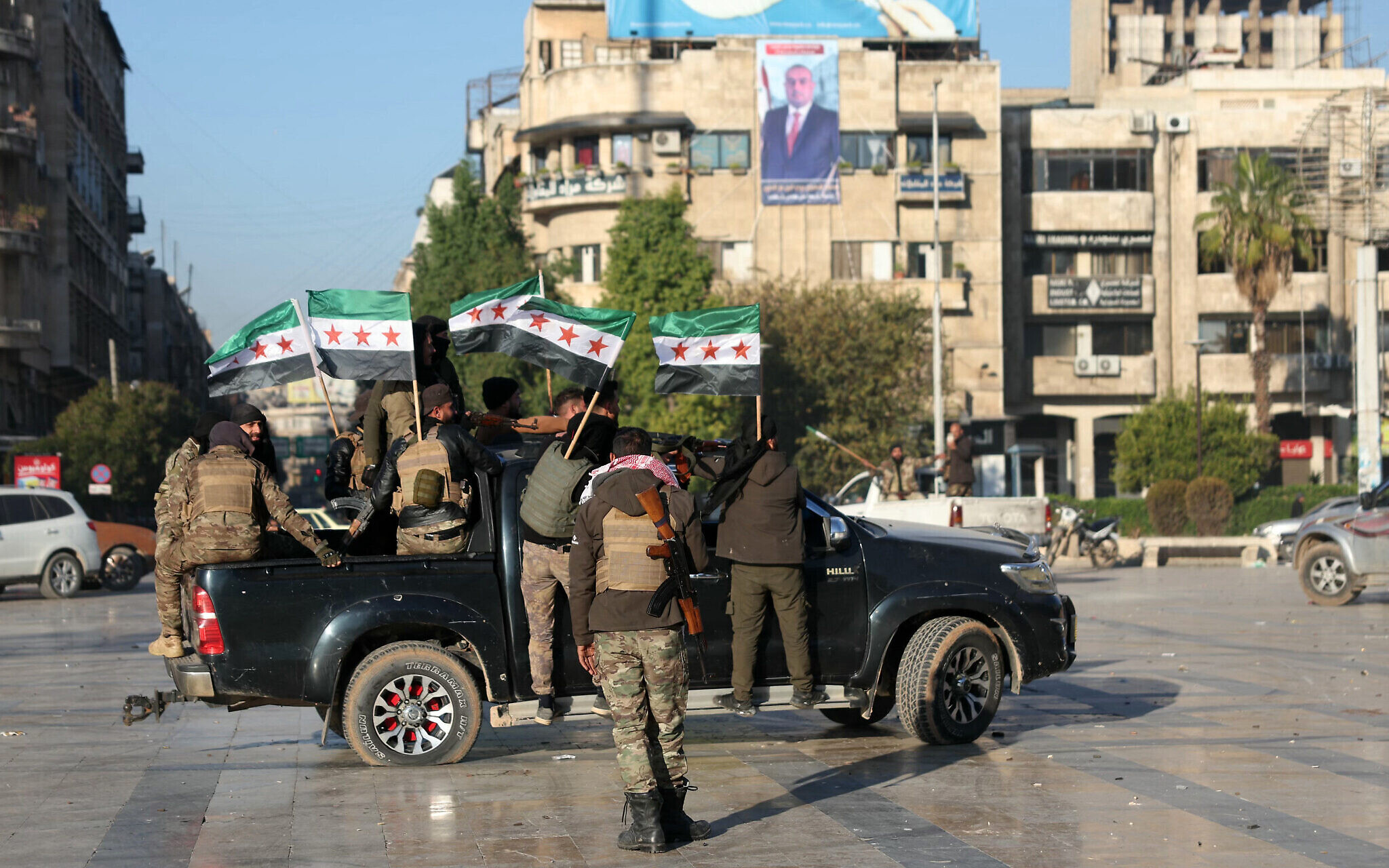For the first time since 2016, Syrian rebels have launched a significant offensive in the city of Aleppo, marking a major turning point in the 13-year conflict that has devastated the nation.
This renewed violence poses a substantial challenge to President Bashar al-Assad’s regime, which has maintained a fragile grip on power through a combination of military might and foreign support, particularly from Russia and Iran.
The resurgence of armed opposition in Aleppo has once again drawn international attention, raising questions about the stability of Syria, the future of Assad’s rule, and the broader implications for the Middle East.
Renewed Conflict in Aleppo: A Historic Flashpoint
Aleppo, Syria’s largest and historically most significant city, has long been a focal point in the country’s civil war. When the city fell to government forces in 2016, with considerable assistance from Russian airpower, it was seen as a pivotal victory for Assad.
The recapture of Aleppo symbolized the regime’s ability to regain control over key territories, quelling the momentum of opposition forces and shifting the tide of the conflict in favor of the government. However, the current offensive by Syrian rebels has disrupted this narrative, signaling that the conflict is far from over.
The renewed fighting has resulted in significant casualties, with reports indicating over 200 deaths within a short period. This resurgence of violence is not merely a local skirmish but a potential harbinger of broader instability.
The rebels’ ability to penetrate Aleppo after eight years suggests that opposition forces have regrouped and strengthened, raising concerns about the Assad regime’s capacity to maintain control over the territory it has reclaimed.
Read : World’s Oldest Alphabet Found on Clay Cylinders in Syria
At the forefront of this offensive is Hayat Tahrir al-Sham (HTS), a powerful rebel group with a complex history. Designated as a terrorist organization by both the United States and the United Nations, HTS has undergone significant transformations over the years.
Read : Syria : One Of the Most Violent Countries In the World
Initially linked to al-Qaeda, the group has sought to rebrand itself as a governing entity, focusing on administration and governance in the areas under its control. Despite these efforts, HTS remains a controversial and polarizing force, with its resurgence in Aleppo raising alarm bells both domestically and internationally.
Challenges for the Assad Regime
The resurgence of rebel activity in Aleppo presents a serious challenge to President Bashar al-Assad, whose grip on power has largely depended on military victories and the suppression of opposition forces.
The offensive underscores the ongoing fragility of the Syrian state and the limitations of Assad’s control. Despite recapturing large swathes of territory, the regime has struggled to achieve lasting stability, with significant portions of the country still outside its control.
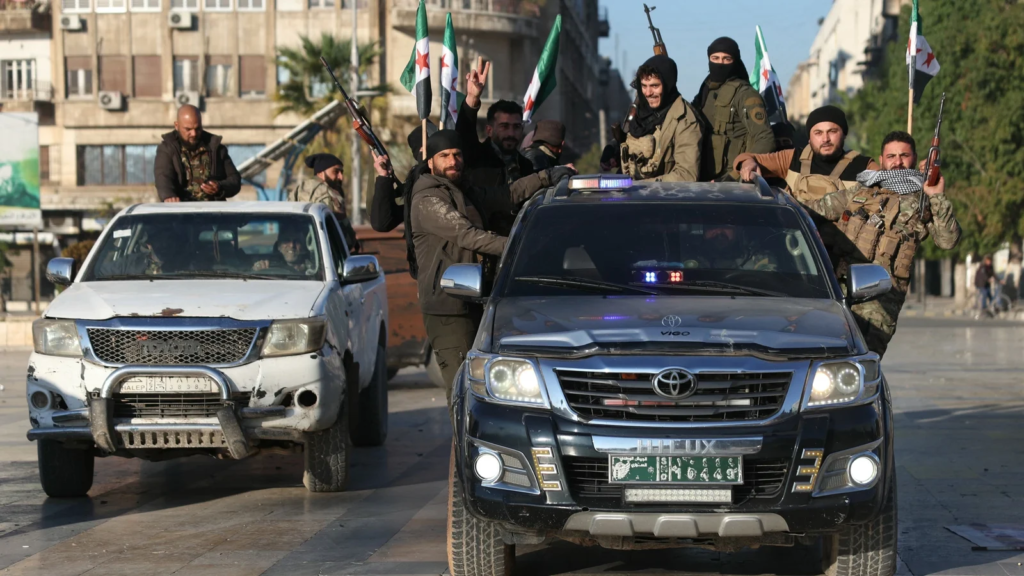
Currently, around 30% of Syria remains governed by a patchwork of opposition factions, Kurdish forces, and foreign troops. The United States maintains a military presence in northeastern Syria, with approximately 900 personnel stationed in the region.
Turkey also plays a significant role, supporting various opposition groups and maintaining a military presence in northern Syria. These foreign interventions add layers of complexity to the conflict, complicating efforts to achieve a resolution and increasing the risk of broader regional escalation.
The renewed fighting in Aleppo comes at a particularly volatile time in the Middle East. The ongoing Israel-Hamas conflict, coupled with tensions between Israel and Hezbollah in Lebanon, has created a highly charged geopolitical environment.
According to Robert Ford, the last-serving U.S. ambassador to Syria, the recent ceasefire in these conflicts may have emboldened Syrian rebels, providing them with an opportunity to advance their position in Aleppo.
This interconnectedness of regional conflicts highlights the broader stakes involved in Syria’s civil war, with potential repercussions extending far beyond the country’s borders.
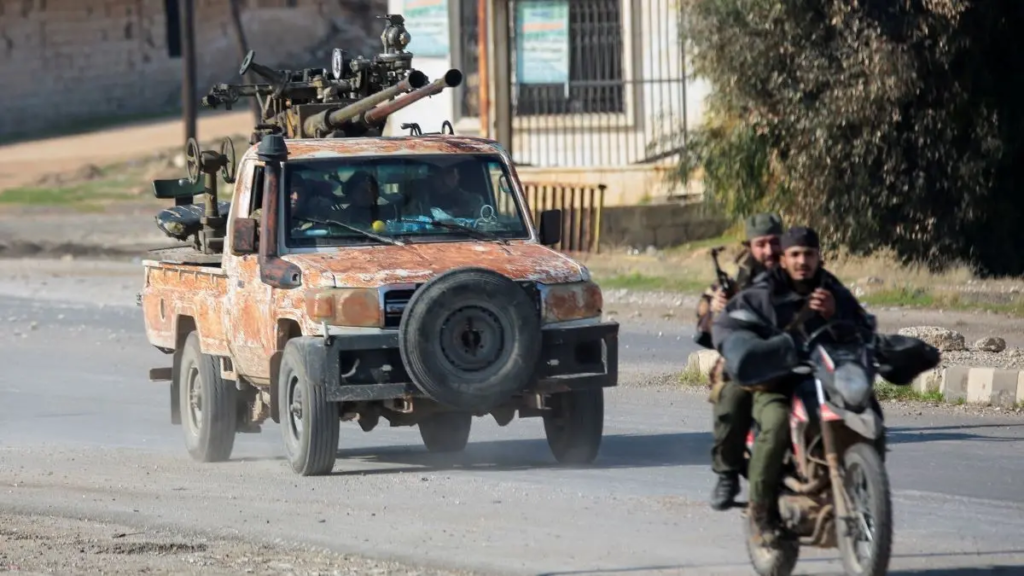
Charles Lister, a Syria analyst with the Middle East Institute, has warned that the renewed violence could lead to significant shifts in the balance of power. If opposition forces manage to sustain their offensive and capture strategic positions, it could undermine the Assad regime’s authority and embolden other rebel factions.
Conversely, a harsh crackdown by government forces could lead to further civilian casualties and exacerbate the humanitarian crisis, fueling resentment and prolonging the conflict.
Broader Implications for Syria and the Middle East
The offensive in Aleppo is not just a challenge for the Assad regime; it has far-reaching implications for the entire Middle East. Syria’s civil war has already had a profound impact on the region, contributing to the rise of extremist groups, triggering a massive refugee crisis, and reshaping the geopolitical landscape.
The conflict has resulted in approximately half a million deaths and displaced millions of Syrians, with around 6.8 million fleeing the country.
This mass migration has had significant political and social repercussions, particularly in Europe, where the influx of refugees has fueled anti-immigrant sentiment and contributed to the rise of right-wing populist movements.
The involvement of foreign powers in Syria further complicates the situation. Russia’s support for the Assad regime has been a critical factor in the government’s ability to regain territory, while Iran’s influence through its proxy forces, including Hezbollah, has added another layer of complexity.
Turkey’s role in supporting opposition groups and its military presence in northern Syria reflect its broader strategic interests, including concerns about Kurdish forces along its border.
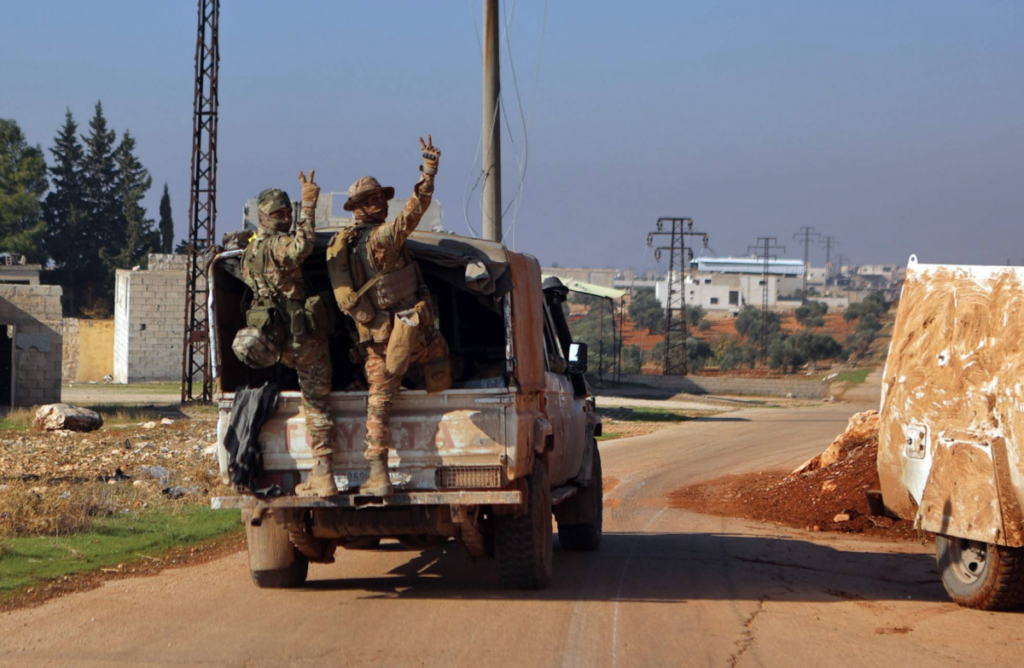
The potential for further escalation is high, particularly if the conflict draws in major powers like Russia and Turkey. Robert Ford has warned that an intensification of the fighting could lead to a broader confrontation, with each external actor pursuing its own interests. This scenario would not only prolong the suffering of the Syrian people but also increase the risk of a wider regional conflict.
At the heart of the renewed offensive is HTS, a group that has managed to maintain its relevance despite years of conflict and international isolation. Led by Abu Mohammed al-Golani, HTS has sought to present itself as a more moderate force, focusing on governance and administration in the areas under its control.
However, its past associations with al-Qaeda and its designation as a terrorist organization continue to cast a shadow over its legitimacy. The group’s resurgence in Aleppo raises important questions about the future of the opposition and the prospects for a political resolution to the conflict.
The entry of Syrian rebels into Aleppo after eight years marks a significant and troubling development in the country’s ongoing civil war. It highlights the persistent instability and fragility of the Assad regime, which has struggled to consolidate its control despite military victories.
The offensive by HTS and other rebel groups poses a serious challenge to Assad’s authority and has far-reaching implications for the broader Middle East.
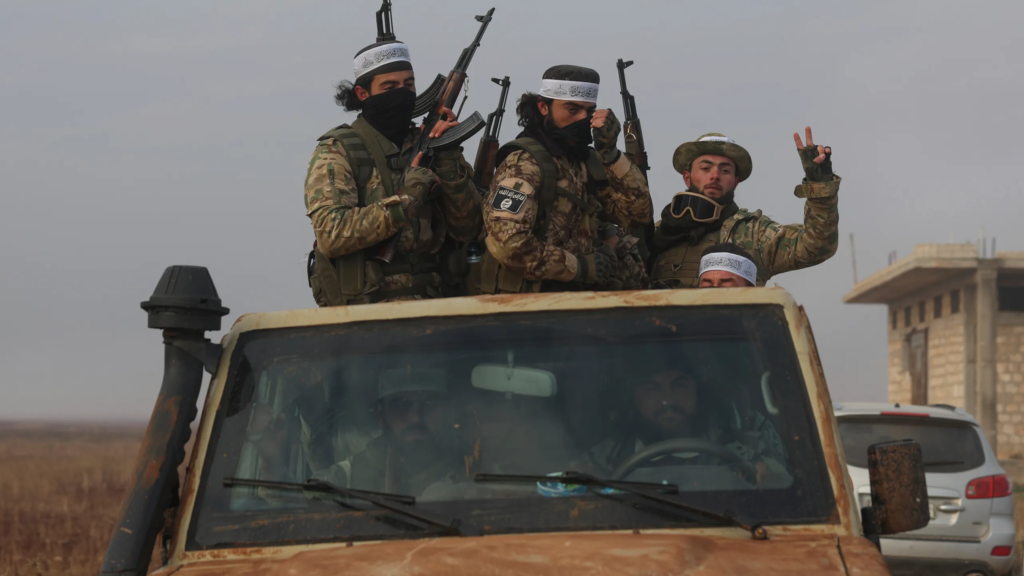
The renewed violence in Aleppo is a stark reminder that the Syrian conflict is far from over. It underscores the complexities of a war that involves multiple factions, foreign powers, and deep-seated grievances.
As the fighting continues, the humanitarian toll will likely increase, further exacerbating the suffering of the Syrian people and contributing to regional instability.
The international community faces a difficult challenge in addressing the conflict in Syria. The involvement of foreign powers, the resurgence of extremist groups, and the ongoing humanitarian crisis all point to the need for a comprehensive and coordinated approach. However, achieving a resolution will be difficult as long as the underlying political and social issues remain unaddressed.
In the meantime, the people of Aleppo—and Syria as a whole—continue to bear the brunt of a conflict that has already caused immense suffering. The latest offensive serves as a sobering reminder of the high stakes involved and the urgent need for a lasting solution.

